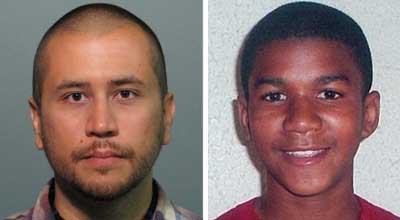In the weeks following the Trayvon Martin shooting, church leaders took to their pulpits—and the Internet—to voice their part in the increasing conversation involving race. Here’s a sampling of the sound bites representing the church’s response to racism.
“The fact that Trayvon’s family and George Zimmerman lived in the same gated community in the South is a mark of how far we’ve come as a nation. The fact that Trayvon was presumed to be a threat, followed and shot to death is a testament to how far we have to go. … We can bring about the day when being the wrong race in the wrong place at the wrong time isn’t a life-threatening circumstance. But progress will take an honest acknowledgment of how much work we have to do, and an earnest desire to do it. We owe Trayvon Martin and the countless others who are killed on our streets and in our communities every day our best effort. The teachings of our faith demand nothing less.” —Nelson Rivers III, NAACP’s vice president for stakeholder relations and Joel C. Hunter, senior pastor of Northland, A Church Distributed in the Orlando, Fla., area.
“There’s tremendous division in cities across America and around the world. I’ve been involved in many of them. But never before have I seen pastors across racial lines come together the way they have come together in Sanford to develop a relationship and say, ‘We’re going to stand together as one and together we’re going to unite this community.’ The differences are not going to go away, but they will not defeat the unity. … God is doing something marvelous in Sanford.” —Raleigh Washington, president of Promise Keepers
“As a Christian, I am grateful for a Savior who not only taught against racism but died as a victim of its wiles; and grateful for His indwelling power that used our brother Martin Luther King Jr. to point the way for our nation, to lead us out of racism’s darkness.” —Jack Hayford, founding pastor of The Church on the Way, Van Nuys, Calif.
“We’ve cast aside our personal opinions for the betterment of our community. It doesn’t matter what I feel about the situation. What matters is that this community is brought to a place of restoration, that they are brought to a place of healing and that they feel a sense of safety within this community. … As we stand as black and white and Hispanic pastors, there is unity here. No division is going to come in and separate this fellowship. We stand and answer as one. … We stand on the behalf of our Savior, of our Christ to operate the way that he would operate.” —Derrick C. Gay, pastor of Dominion International in Sanford, Fla.
“The church should feel compelled to respond. Not just with condolences and platitudes, but with a renewed sense that our commission to love and serve in the name of our Lord requires both the recognition of the racial challenges that exist and a determined commitment to lead the way in learning to live together respecting and valuing all who are created in the image of God.” —Steve Riggle, senior pastor of Grace Community Church in Houston
“We are our brother’s keepers and we will stand united and work together as a city to see healing and reconciliation and the ultimate kingdom of God to have dominion in our city. … Forgiveness begins the healing process and begins to set a new tone in our city.” —Paul Benjamin, pastor at Central Florida Dream Center
“I am extremely bothered by this issue—first as a man of God; second, as an ordinary Christian; third, as an American citizen; and fourth, as an African-American male. Romans 13:1-4 says that the authorities are ministers of God set there to protect those who follow the law against those who prey on the innocent in our society. … I would like to see God’s church stand up for the role of the police in our society and honor them when they do their jobs properly. But when police or prosecutors or the government chooses not to treat all God’s children as equal, the church—black, white, red, yellow and brown—must also speak up and say it is not right.” —Keith A. Butler, founding pastor of Word of Faith International Christian Center in Southfield, Mich., and senior pastor of Faith4Life churches in Texas and Mississippi
“Neutralize criticism with forgiveness. It will help the relationship between a friend and a friend. It will help the relationship in your marriage. It will help the relationship in your community. Praise God Almighty, it will bring healing to the nation. … Trayvon died for a purpose. It’s a great tragedy, yes. His folks are going to mourn for him, yes. But God has a purpose for each of our lives, and we can be better people.” —Larry L. Leonard, pastor of Grace Fellowship Congregational Church in Sanford, Fla.
“When we base how we feel about someone on their appearance, the color of their skin or their cultural background, we’re dealing with prejudice. Racism is a bigger monster. Racism isn’t about color, it’s about money and power. Those with money and power are the only ones who can be racist because they have the resources. The superior can only be racist, not the inferior; but the superior or inferior can be prejudiced.” —Frederick K. Price, pastor of Crenshaw Christian Center in Los Angeles











































